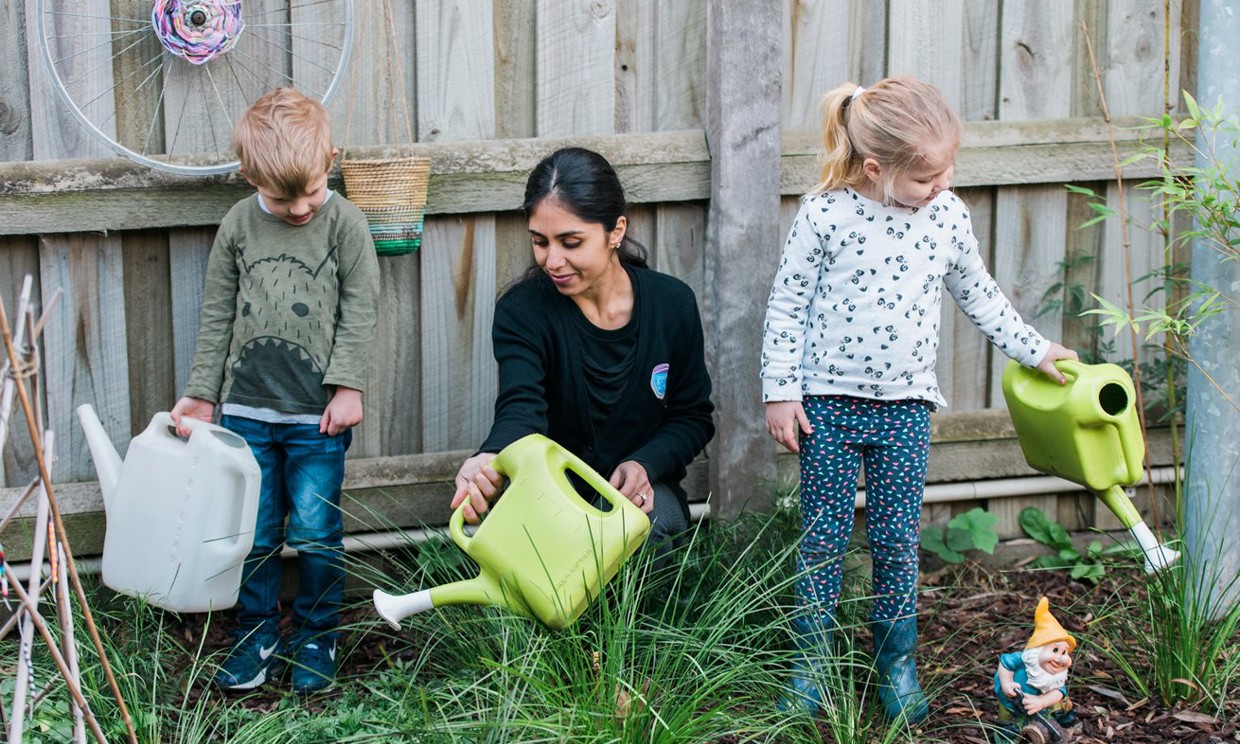Did you know there are many times during the day when you can extend your child’s knowledge and skills?
These are called teachable moments, and they can promote secure and stable interactions and relationships between children and their parents, and children and their educators.
Goodstart Early Learning national manager professional practice Greg Antcliff said teachable moments were all about incidental teaching.
“It happens when educators and parents take advantage of opportunities in everyday moments and routines to extend a child’s knowledge and skills,” Mr Antcliff said. “It uses a child’s interest and natural motivation to learn new things and maximises the opportunities for verbal exchanges.”
Making the most of teachable moments from an early age can give children a good headstart for a range of academic outcomes and:
- Can encourage language development
- Increase quality time between parents/educators and children
- Helps children develop skills and confidence for reading
- Can increase academic success.
So how can parents and educators identify teachable learnings?
Mr Antcliff said the first step in identifying teachable learnings was to identify children’s interests and talk about everyday activities such as routines, rest or mealtimes.
Parents and educators can point out words from other languages, and encourage children to say them and point out letters, words and symbols.
“Parents can also use the strategy of thinking out loud where they may say ‘I think it might rain’ and then wait for the child to respond. They might say `the clouds are grey’, and then you would respond with: `we could take an umbrella’ and wait for the next initiative.
To promote language development parents and educators can strive to keep the conversation going back and forth five times.
“Tuning into the environment around the child is useful as it lets children know they can obtain information from reading, watching and paying attention to the small things,” Mr Antcliff said.
“Remember that this practice works best in bite-sized moments and with small children it works best for one to two minute interactions used frequently throughout the day, rather than long but infrequent interactions.”
He said if a child lost interest, it was best to move on to something else because interactions should always be fun and enriching.
Guidelines for encouraging teachable moments
- Name things, people and actions
- Encourage children to play with pictures, games or puzzles
- Point out letters, symbols and words where ever you see them
- Use lots of descriptive language that teaches about concepts such as colour, shape and size
- Play matching games with real objects, shapes, pictures or words
- Help children get to know the letters in their names, especially the first letter.
Helpful hints and tips for parents and educators
- Bite-sized moments work best. Smaller children enjoy short (one to two minute) interactions used frequently during the day, rather than long, infrequent interactions.
- Watch for the child’s cues. Move on to something else if your child loses interest.
- Make sure your interactions and fun, positive and enriching.
In Part Four of the series, Mr Antcliff will share the benefits of naming children's emotions.
Part One in the series discusses the importance of allowing your child to lead, while Part Two talks about the importance of praise.
Acknowledgement for each Practice in Action Guide (PIAG) –
This PIAG was adapted with permission form the Parenting Research Centre and the Benevolent Society from The Benevolent Society’s Resilience Practice Framework: A framework to promote resilience in children and families, Guides, 1 – 6, 2015.
These educational resource guides are based on the original guides in PracticeWise Evidence-Based Services (PWEBS) database, drawn from child and family therapeutic intervention outcomes studies (PracticeWise, 2009), adapted with permission by the Parenting Research Centre and The Benevolent Society.
For further information see www.benevolent.org.au/resilience; and www.parentingrc.org.au


